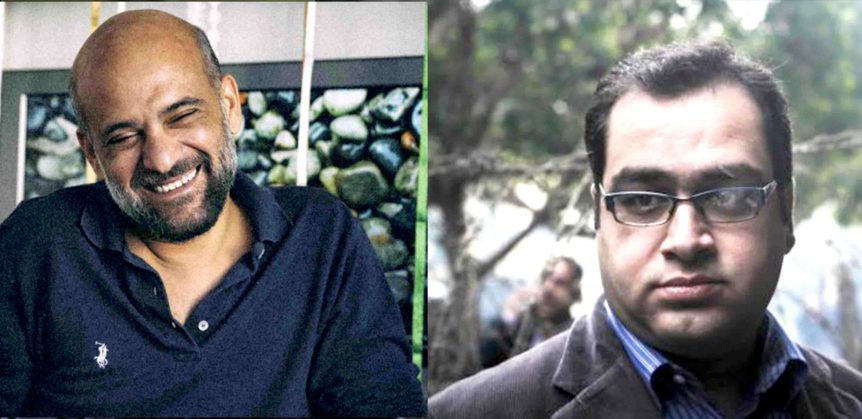Ten civil society organizations including CIHRS, a European Lawyers’ association and three prominent lawyers are publishing a letter today February 10 addressed to a group of European Union Ambassadors denouncing the arbitrary listing of human rights defenders Zyad el-Elaimy and Ramy Shaath on Egypt’s Terrorist Entities List. Shaath and El-Elaimy, in arbitrary pretrial detention since July 2019, were added to the terrorist list without due process. An appeal against that decision is to be heard in court today, Wednesday, 10 February.
The letter demanded the suspension of the decision and the consequences thereof, and to put an end to the use of the Terrorist Entities List as a repressive and retaliatory measure and a means of confiscating the legitimate right to freedom of expression and association.
Dear Ambassadors,
We, the undersigned, strongly condemn Egypt’s use of its list of terrorist entities as a tactic to repress and stifle legitimate expression and association, specifically with regard to prisoners of conscience Ramy Shaath and Zyad el-Elaimy. On the eve of their appeal, we implore you to raise this issue with the relevant authorities and urge the immediate removal of the two from the terrorist entities list and lifting of any injurious measures levied against them.
Shaath, a Palestinian-Egyptian human rights defender, and el-Elaimy, a former Egyptian member of parliament will be heard in appeal on February 10, 2021; they were added to the terrorist entities list April 2020 in absentia and without the presence of their lawyers. Their families learned of their addition only when the decision was published in local news. The decision carries a five-year travel ban, freeze of assets, disbarment for el-Elaimy (who is a lawyer), and prohibition from participating in any political party; it may also allow the courts to strip Shaath of his Egyptian citizenship. The decision was condemned by human rights organizations and the European Parliament; no evidence was ever presented to attest to the defendant’s criminal activities. To date, the Court of Cassation has blocked access to the Prosecutor’s opinion on the appeal, further obstructing the right to defense.
Shaath and el-Elaimy have been held in pretrial detention in Tora prison since July 2019 as part of Case 930 of 2019, also known as the “Hope Case,” in which they face allegations of joining a terrorist organization. Both Shaath and el-Elaimy have been declared prisoners of conscience, as their detention is directly related to their political activism. The two-year maximum period for pretrial detention for the two will end in July of this year; if their addition to the terrorist entities list is upheld, however, and they are not able to leave the country or access their assets, any freedom would only be provisional.
The use of the terrorist entities list as an arbitrary and punitive tool against peaceful citizens raises serious concerns about the wide scope of legal and administrative mechanisms the current Egyptian government uses in its repression of free expression and association. In addition to Shaath and el-Elaimy, rights activist Alaa Abdel Fattah and rights lawyer Mohamed Baqer were also added to this list in November 2020. The administrative decisions do not allow defendants the ability to present sufficient defense, and constitutes a violation of the right to presumption of innocence protected in Article 14 of the International Covenant on Civil and Political Rights, to which Egypt is a signatory. Furthermore, the application of the terrorist designation should be reserved only for violent offenders in line with the United Nations recommendations on respect for human rights in the scope of combatting terrorism; reform of the terrorist entities law to limit its application is necessary to ensure similar violations do not continue.
We thank you for your attention to this matter.
- The Freedom Initiative
- Cairo Institute for Human Rights Studies
- Project on Middle East Democracy
- Committee for Justice
- MENA Rights Group
- World Organisation Against Torture (OMCT)
- Egyptian Forum on Human Rights
- FIDH
- EuroMed Rights Network
- ACAT-France
- European Association of Lawyers for Democracy and World Human Rights (ELDH)
- Michael Mansfield, QC
- Richard Falk, Professor Emeritus of International Law, Princeton University
- Bill Bowring, Professor of Law at Birkbeck College, University of London
Share this Post

